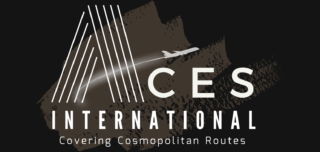Mid-career change? When you hear the word career, you probably think of a professional career that you’ve been building for years. Maybe changing careers is something you’ve even thought about doing. But before you make that decision, it’s best to read up on the pros and cons of mid-career changes.
So, you’re thinking about a mid-career change. If you’re in your mid-twenties and just starting a career, you may already have some job experience and a clearly defined career path. If you’re in your mid-thirties and beyond, you may have decided a few years into your current job that you want to try something new. Whatever the reason, making a mid-career change is a big decision. It’s perfectly normal to feel overwhelmed, anxious, and scared about the change.
What Is Mid-Career?
Mid-career is the transition point between youth and adulthood, and it is often a milestone that marks a view of settling down and starting a family. It is that point when you have enough education or experience to make a career for yourself. It doesn’t mean that you have reached your peak but that you are no longer considered a child.
A mid-life career change can be intimidating, but it does not have to be. If you’re ready for a career change, there are things you can do to make it easier and more successful. Here are five tips to get you started:
- Know what you want: Make a list of everything you’d want out of a career change. Then, prioritize those qualities. This will help you narrow down what type of career change is right for you. What do you want to accomplish with your career change? Do you want to advance with your current company? Or would you love to strike out on your own? Whatever your goal, it is important to have a clear picture of what you want to achieve.
- Network: Connect with professionals and experts in your field and those with industry of interest. Consider attending events, learning sessions, and industry conferences. Also, do not forget to explore insightful and informative weblogs written by a team of experts. For instance, if you are considering physiotherapy as your next career option, you might want to explore physical therapy ceus online blogs. These platforms can provide an excellent education opportunity, ensuring you stay informed and up to date on specific topics relevant to your role as a physiotherapist.
- Get certified: If you’ve already graduated from college, consider taking certification courses that will help you advance your career. For instance, if you want to become a nursing assistant, find a CNA School that can help you get certified. Similarly, if you want to become a personal trainer, you will find plenty of online courses to help you get the certifications that you need. Furthermore, consider pursuing advanced degrees or specialized training programs in your desired field. These additional credentials can enhance your qualifications and make you more competitive in the job market.
- Consider changing industries: Maybe what you’ve always done is not what you should be doing. Consider changing fields. This can help you explore new opportunities and discover a career path that better aligns with your interests, skills, and goals. Research industries that are experiencing growth and demand for skilled professionals, and consider how your transferable skills and experiences can be applied in a new context.
- Talk to a Life Coach: If you’re in a tough spot, consider talking to a Life Coach who can help you out. An expert of comparable caliber can help you think about your career differently, offering you a different perspective and providing you with strategies to achieve success.
- Use your intuition: During a career change, it’s important, to be honest with yourself about what feels right. Ask yourself: Do you feel more energized in your current job? Or would you be happier, more fulfilled, and more challenged in another role?
- Seek out a mentor: A mentor can be anyone-a friend, a colleague, or a professional coach. Ask them what they would do to make the change, and then do it. This can provide invaluable guidance and support as you navigate your career transition. A mentor can offer insights, advice, and encouragement based on their own experiences, helping you gain clarity and confidence in your decision-making process.
- Consider moving out: Sometimes, finding better career opportunities means relocating to a different city or region where your desired industry or career field thrives. Moving to a new location can broaden your job prospects and professional networks, offering avenues to explore new career paths and expand your horizons. To facilitate a smooth transition and ease the challenges of relocation, consider partnering with professional moving companies like Happly (you can learn more about their services here). These experts tend to specialize in providing comprehensive assistance with packing, transportation, and logistics. With their experience and resources, they can manage every aspect of your move, from meticulously packing delicate items to securely transporting your belongings to your new home. Therefore, by entrusting your relocation to professional movers, you can focus on seizing new career opportunities and settling into your new environment with confidence.
- Make time for reflection: Take time to think through what you want out of life. A mid-life career change can be an exciting, terrifying, and confusing time. Our priorities and values change as we get older, and our bodies and mindset often reflect these changes. It’s sometimes tempting to avoid reflection since reflections of the past sometimes bring up sad memories, but it’s important to reflect on what goals are important and what steps we need to take to move forwards in life and achieve those goals.

